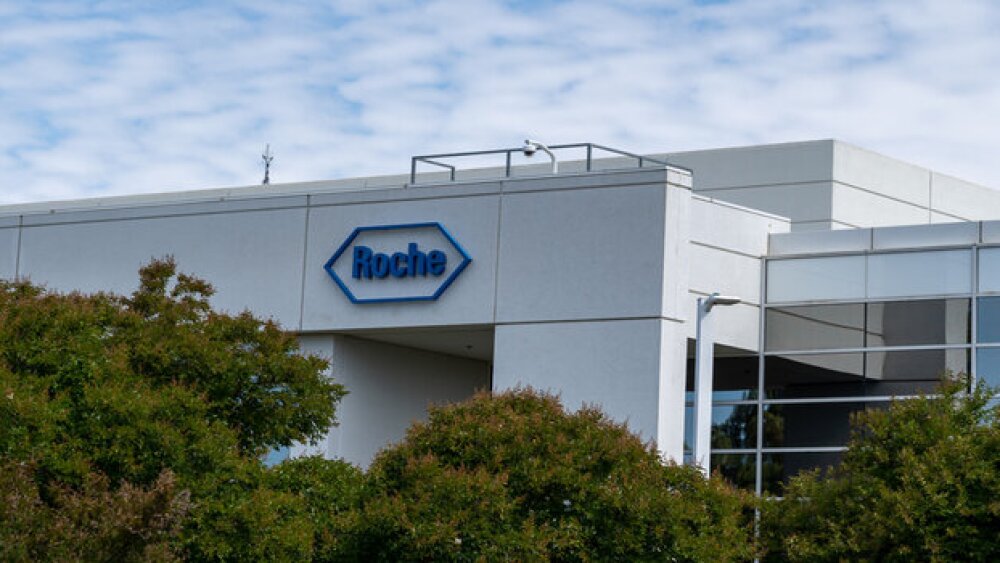The subcutaneous version of its blockbuster multiple sclerosis drug notched a victory in a key late-stage study. Roche will submit the OCARINA II data to global health authorities in the coming months.
Pictured: Roche Building in Pleasanton/iStock, JHVEPhoto
Roche’s Genentech claimed victory for the subcutaneous formulation of its multiple sclerosis blockbuster Ocrevus on Wednesday, with plans to submit Phase III data for regulatory approval.
In the OCARINA II study, twice-yearly, 10-minute subcutaneous injections of Ocrevus were pitted against the currently approved IV formulation for multiple sclerosis (MS). The subcutaneous dosing proved as effective in patients with relapsing or primary progressive MS over a 24-week period as the IV version on pharmacokinetic, biomarker and MRI measures.
Ocrevus works by targeting and removing a type of B cells that attack the myelin covering around the brain and spinal cord nerve cells. In the Phase III study, the subcutaneous injection provided rapid and sustained B-cell depletion similar to the IV infusion—97% and 98%, respectively, had levels of 5 cells/µL or less at two weeks, which was sustained over 24 weeks.
Both formulations also resulted in near-complete suppression of brain lesions, which represent markers of active inflammation and are a measure of disease burden.
“Having this additional treatment option may improve the treatment experience for both patients and physicians, and we hope the twice-a-year dosing will offer the same high adherence and persistence,” Levi Garraway, Genentech’s CMO, said in a statement.
The data will be presented at an upcoming MS conference and also submitted to regulatory authorities around the world “in the coming months,” the company said.
Currently, Ocrevus is approved in an intravenous formulation. The MS drug generated more than $1 billion in sales one year following its launch. However, analysts contend an alternate option for administration can boost sales even further, predicting $6.3 billion in global sales in 2030 of the drug.
Ocrevus’ competitor is Novartis’ Kesimpta, a self-injected formulation that is administered once monthly. Safety and efficacy data are considered comparable between the two.
While Ocrevus is firmly seated as the market leader, Novartis’ drug is starting to gather momentum and challenging Roche’s dominance. Novartis reported $489 million in Kesimpta sales for the second quarter of 2023, a 105% increase over the same quarter last year.
Roche reported Ocrevus sales for the first half of 2023 at roughly $3.5 billion.
Kate Goodwin is a freelance life science writer based in Des Moines, Iowa. She can be reached at kate.goodwin@biospace.com and on LinkedIn.






